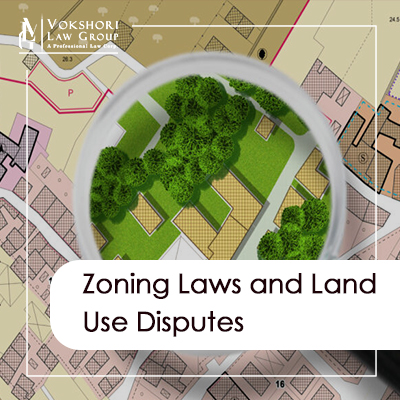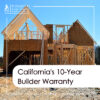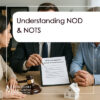
Zoning laws and land use regulations are crucial in shaping the development and organization of communities. They dictate how land can be used, what structures can be built, and ensure that property use aligns with community goals and standards.
However, these regulations can also lead to disputes, often requiring legal intervention to resolve. In this article, we will explore the intricacies of zoning laws, common land use disputes, and how a real estate litigation lawyer can provide effective solutions.
Understanding the Zoning Laws in California
Zoning laws are local regulations that govern how land can be used within specific areas or “zones” of a municipality. These zones can include residential, commercial, industrial, agricultural, and mixed-use areas, each with distinct rules and restrictions.
The primary objectives of zoning laws are to:
- Ensure orderly development and land use.
- Protect property values.
- Promote public health, safety, and welfare.
- Prevent land use conflicts.
Zoning ordinances typically cover aspects such as building height, density, setbacks, lot sizes, and land use types. Local governments enforce these regulations through zoning boards and planning commissions.
Exploring the Most Common Land Use Disputes
Land use disputes arise when property owners or developers encounter conflicts with zoning laws or neighboring property owners. Some common types of land use disputes include:
Variance Requests
A variance is a request to deviate from the zoning requirements for a specific property. Property owners may seek variances for reasons such as building height, lot size, or setback requirements. Disputes can occur when neighbors or local authorities oppose the variance request.
Rezoning Applications
Rezoning involves changing the zoning classification of a property to allow for different uses. This can be a contentious process, especially if the proposed change impacts the surrounding community. Disputes often arise between developers seeking rezoning and residents or local businesses opposing the change.
Nonconforming Use
A nonconforming use refers to a property use that was legally established under previous zoning regulations but does not comply with current zoning laws. Disputes can occur when property owners wish to expand or modify the nonconforming use, leading to conflicts with zoning authorities.
Conditional Use Permits
Conditional use permits allow for certain uses that are not generally permitted within a zoning district but may be allowed under specific conditions. Disputes arise when the conditions imposed are deemed unreasonable or when neighboring property owners object to the proposed use.
Land Development and Environmental Concerns
Land development projects can face opposition due to environmental concerns, such as impacts on wetlands, wildlife habitats, or water resources. Disputes often involve balancing development goals with environmental protection.
Navigating Legal Solutions for Land Use Disputes
Resolving land use disputes requires a comprehensive understanding of zoning laws, local regulations, and legal procedures. Fortunately, an experienced real estate attorney can help with the following legal solutions:
Legal Representation in Zoning Hearings
A real estate litigation attorney can represent property owners, developers, or community members in zoning board hearings and planning commission meetings. They present compelling arguments, provide evidence, and advocate for their client’s interests.
Negotiation and Mediation
Many land use disputes can be resolved through negotiation and mediation. A skilled lawyer can facilitate discussions between conflicting parties, helping them reach a mutually acceptable solution without the need for prolonged litigation.
Filing Appeals and Legal Challenges
If a zoning decision adversely affects a property owner, a real estate litigation lawyer can file appeals or legal challenges. This involves presenting the case before a higher authority or court, seeking to overturn or modify the decision.
Drafting and Reviewing Legal Documents
Land use disputes often involve complex legal documents, including variance applications, rezoning requests, and conditional use permits. A lawyer can draft, review, and ensure that these documents comply with legal requirements and protect the client’s interests.
Compliance and Enforcement
Ensuring compliance with zoning laws and addressing enforcement actions is crucial. A real estate litigation lawyer can guide property owners through compliance issues, negotiate with zoning authorities, and defend against enforcement actions.
Have Questions About Zoning Laws and Land Use Disputes? Contact an Experienced Real Estate Attorney Today
Zoning laws and land use regulations play a vital role in community development but can also lead to disputes that require legal expertise to resolve. At Vokshori Law Group, our highly experienced and reputable real estate litigation lawyers are dedicated to helping clients navigate these complex issues, providing effective legal solutions to protect their interests.
For more information and/or to schedule a consultation, please contact Vokshori Law Group at (855) 855-2608 or visit www.VokLaw.com to learn more.






